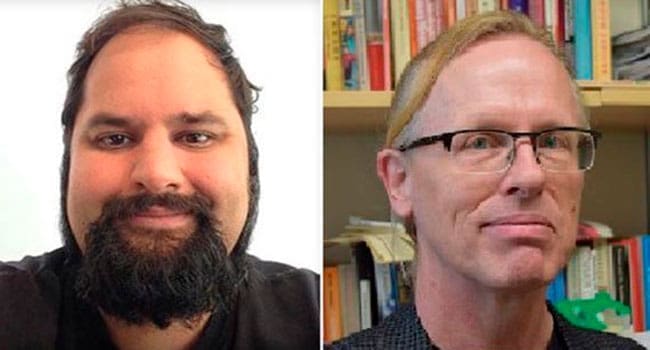 At one time, universities respected free speech and the exchange of different ideas. Intellectual discourse and thought-provoking debates were viewed as healthy, vibrant and treasured.
At one time, universities respected free speech and the exchange of different ideas. Intellectual discourse and thought-provoking debates were viewed as healthy, vibrant and treasured.
Unfortunately, speech isn’t nearly as free on today’s university campuses. Intolerance of opposing philosophies, and hurt feelings among the hordes of special interest groups, have come to define modern institutions of higher learning.
A recent incident at Wilfrid Laurier University in Waterloo, Ont., provided a glimpse of what the future may hold for Canadian post-secondary education – and it ain’t pretty.
Lindsay Shepherd, a graduate student in communications, wanted to create an intellectually stimulating atmosphere for her two tutorials. So she showed a five-minute video clip from a current affairs program, TVO’s The Agenda with Steve Paikin, which featured a debate about gender-neutral pronouns.
One of the panelists was University of Toronto psychology professor Jordan Peterson. He’s made a name for himself for opposing the use of non-gendered pronouns. Whether you agree or disagree with his position, it’s a view that’s worth further discussion and debate in a democratic society.
For Shepherd – who, as it happens, disagrees with the professor – it seemed like the perfect tool for a teaching assistant to use on a university campus. Or so she thought.
An unnamed student launched a complaint about this video. Shepherd was accused of violating her university’s gender and sexual violence policy. This led to a meeting with Prof. Nathan Rambukkana (her supervisor), Prof. Herbert Pimlott and Adria Joel, who manages the Gendered Violence Prevention and Support program.
Shepherd recorded this, shall we say, academic inquisition in full view of her accusers. Although initially hesitant to release the audio, since it could jeopardize her academic future, she opted to let the truth set her free.
At one stage, Rambukkana inquired whether Shepherd was “one of Jordan Peterson’s students,” like this was some sort of a set-up (she wasn’t). He ranted that Peterson was a member of the alt-right (he’s not) and holds intolerant points of view (he doesn’t seem to, but that’s a matter of interpretation).
Shepherd’s retort to her supervisor was clear and concise: “But can you shield people from those ideas? Am I supposed to comfort them and make sure that they are insulated away from this? … Because to me, that is so against what a university is about. So against it. I was not taking sides. I was presenting both arguments.”
Incredulously, Shepherd’s neutrality wasn’t acceptable to this trio of woe. When she suggested, “In a university all perspectives are valid,” Rambukkana responded, “That’s not necessarily true” and bizarrely claimed her decision not to take sides was “like neutrally playing a speech by Hitler.”
Moreover, the video clip supposedly contravened university policy by causing harm to “trans students” and creating a “toxic climate.” Shepherd was even told her decision violated Bill C-16, which amended to the Canadian Human Rights Act with respect to hate propaganda and gender identification. That’s nonsense, since that section has nothing to do with transgender pronouns and/or discussions in university classrooms.
The reaction of the political right and left was nearly simpatico: Wilfrid Laurier University had made a mockery of free speech.
In the face of such heavy criticism, the institution was forced to apologize.
Shepherd has correctly questioned the sincerity of this apology based on her traumatic experience. She recently said at a rally, “I never thought we would get to the point in a society where showing a clip from The Agenda with Steve Paikin in a classroom would end up as an international news story and an institutional scandal.”
The preposterous and rather loony views of several Canadian academics qualified to teach young minds should raise an army of red flags among free speech defenders and average citizens.
Let’s hope students who have to deal with future anti-free speech incidents are just as brave as Lindsay Shepherd.
Michael Taube, a Troy Media syndicated columnist and Washington Times contributor, was a speechwriter for former prime minister Stephen Harper. He holds a master’s degree in comparative politics from the London School of Economics.
The views, opinions and positions expressed by columnists and contributors are the author’s alone. They do not inherently or expressly reflect the views, opinions and/or positions of our publication.

